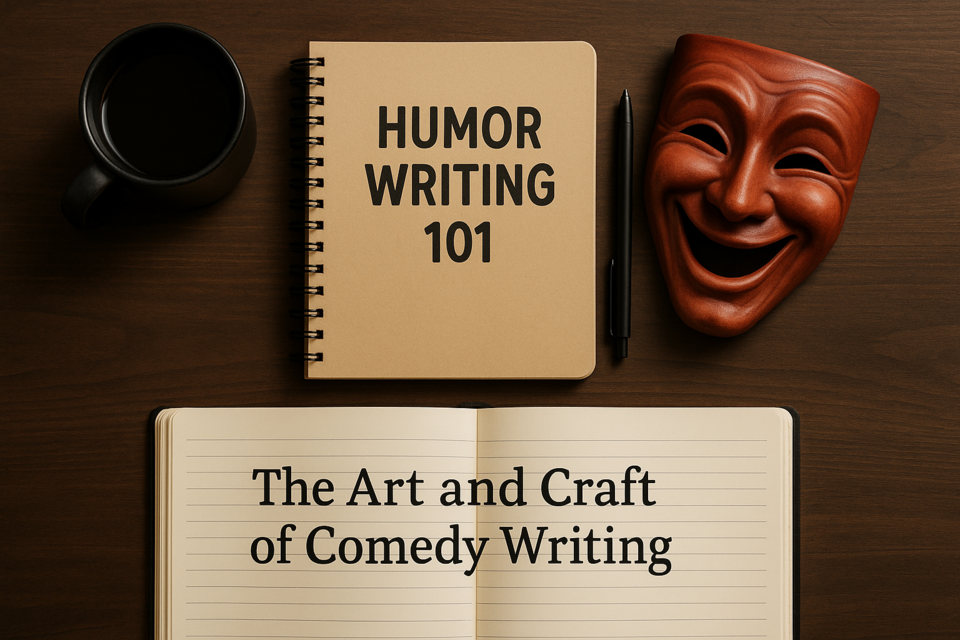The Role of the Law in Journalism
The legal rules, as they apply to journalists and media, are a complex and fluid series of decisions that define the boundaries of acceptable behavior. In other words, the law is always changing. New laws are being made, old laws are being overturned. Generally, the law may have the intent of offering clear guidance, but this is usually hammered out in test case, after test case. Realizing that there are experts who spend decades toiling specifically in the field of the legalities of journalism, it is apparent that only a cursory introduction can be offered in this article. However, a crash course in journalism and the law is an excellent starting point for the beginning journalist. Be aware that it is a subject you will need to continue to educate yourself in.
The court system of the United States is labyrinthine. There are federal, state, and local courts, a military court system, and separate courts for territories of the United States and Washington D.C. Each system has trial, intermediate appellate, and supreme courts, with the trial courts making initial decisions about a matter, and the appellate and supreme courts reviewing this information, if challenged. Finally, there is the U.S. Supreme Court, which addresses issues with the greatest scope � nationally, internationally, and interstate. One state cannot impose their decision on the courts of another state, and the U.S. Supreme Court has jurisdiction over all.
Trial courts are the gateway into the legal system, and the only courts that use juries. The higher courts use panels of judges, ranging from three to nine. Lawsuits are either civil matters or criminal cases. A civil suit is an action brought by a plaintiff against a defendant, asking the latter to be held monetarily responsible for some type of wrong. A criminal suit is one in which a defendant is accused of violating a criminal statute that requires jail time and/or fines.
There are a variety of legal issues that encompass journalism, but the most frequent questions are on matters of First Amendment rights, libel, privacy, emotional distress, news gathering, intellectual property, regulation of the media � electronically and in print -- and where a reporter's privilege begins and ends. It behooves the budding journalist to have a working knowledge of these subjects, as they begin their career.
People tend to spout off about their First Amendment rights without having any idea of the exact wording of it. Take a moment and read through the First Amendment from the United States Constitution.
Amendment I. Congress shall make no law respecting an establishment of religion, or prohibiting the free exercise thereof; or abridging the freedom of speech, or of the press; or the right of the people peaceably to assemble, and to petition the government for a redress of grievances.
To the lay reader it seems clear that the government is not permitted to interfere with the exercise of free speech in any situation. However, in lawsuit after lawsuit, the U.S. Supreme Court has claimed that this amendment also doesn't preclude the government from regulating either the press or "free speech." Moreover, the majority of decisions that have been handed down from the Supreme Court also do not recognize any distinct rights of the press (or media), but view the amendment as a simple composite ruling on freedom of expression, in general. The issue of government censorship dates back to the 1500s. This is when the first instances of government regulation of the press can be found. Such famous philosophers of the time, including Milton, Locke, and Rousseau, were the first to argue against government control of the press as a form of "thought police." Rather, the government's responsibility to their way of thinking was simply to protect the natural rights of humans! Over 400 years later, the argument about freedom of the press continues to rage. That is not to say that some progress on the issue hasn't been made since then! As the American colonies settled in and began thinking for themselves, they rejected the notion that truthful criticism of the government was subject to punishment. Their desire to be separated from Britain helped to shape the "freedom of speech and press" amendment.
Even so, it has been challenged regularly in the United States, since freedom from Britain was won. Often at issue is the matter of prior restraint. This is official review of information by a government official prior to dissemination, with censorship intervention permitted. The Supreme Court has ruled on this issue more than once, reversing itself in the process. When matters of free speech reach the U.S. Supreme Court, the boundaries of each argument are usually limited and well-defined, and the justices are placed in a position of considering competing arguments about which category of speech is more important to the case.
Libel
Libel is a false statement written and published about another individual that damages their reputation, or is personally offensive. Interestingly enough, even when an individual brings a lawsuit against the media or journalist for purported false statements there are acceptable defenses that may cause the plaintiff to lose the case. The plaintiff must be able to demonstrate that the information was published and identifies that person, defamation is evident, and the defendant is the perpetrator. However, most complex is whether the facts of the case can prove malice, negligence, and whether it involves public or private officials or figures. Today, with the plethora of media outlets and the almost ubiquitous nature of the printed word, the courts are now faced with trying to delineate the source of libel action. Journalists who are just starting out should seek the legal counsel of attorneys that work for the media outlet where they are employed to ensure their stories fall within legal acceptable parameters.
The Issue of Privacy
Never before has a single issue been the source of greater debate than privacy in this 21st century of pervasive recording devices. Privacy has always been a jealously guarded personal right. But cell phone and other security cameras have changed all this -- sometimes for the better, and sometimes not. Perhaps the most interesting point to be made in this section is that the U.S. Constitution does not in any way guarantee the right to privacy. Since the creation of the Constitution, the U.S. Supreme Court has imposed privacy regarding reproductive and sexual issues, and nothing more. At the same time, Congress has passed certain privacy laws, but these often relate to freedom of information; and since the September 11, 2001 attack on the United States, privacy is being contested on every level. The question is, where does the individual's right to privacy end, and the public's right to safety begin? Or where does the government's right to view personal documents start? The Supreme Court has made several interesting rulings on this very subject recently. In 2010, government employees were informed that employers may view any messages sent on government-issued equipment. But the attachment of a GPS tracker to a private vehicle is a violation of 4th Amendment rights.
Emotional Distress
Emotional distress is one of the most challenging areas of law for the journalist and lawyer alike. The trajectory of a lawsuit usually appears in the following manner. The plaintiff claims negligent infliction of emotional stress. The defendant is liable because he or she had a "duty of due care" and breached the responsibility. As a result, the plaintiff suffered emotional injury that can be traced back to the defendant. The plaintiff must be able to demonstrate that the act was deliberate, outrageous, and reckless. When public figures are the plaintiffs, they have the additional responsibility of demonstrating malice. If emotional distress or malice are determined, there is simply no defense on the part of the accused. If ever there is a call to ethics for the journalist it is in the case of issues of privacy and emotional distress.
The Parameters of Gathering the News
What journalist starting out doesn't secretly dream of their own Woodward and Bernstein fame? These were the two very famous reporters who uncovered the Nixon Watergate scandal in the 1970s, and changed the game of investigative journalism forever.
However, the beginning journalist must realize that there are parameters to the news-gathering process, and to breach them may not only be unethical � it may be illegal as well. Just because you are a member of the press, does not give you more rights to break laws to get the information you are looking for. For example, it is illegal to trespass or go onto another individual's private property to look for news. The property owner must give personal consent for a journalist to be on their property. Other behaviors that are as illegal for journalists, as for the average citizen, include harassment, misrepresentation, and outright fraud. An example of a subject that is unresolved, or differs from state to state, is the right of the journalist to surreptitiously record the conversations without permission. As well, military operations are subject to specific limitations for journalists. One remedy is the Freedom of Information Act that many journalists avail themselves of. Although collecting information of a government nature may take longer using these channels, it does not put the journalist in a position where they can be sued or arrested.
Violence, Indecency, and Obscenity
Many journalists might mistakenly believe that this area of the law is the most obvious, and it is easiest to avoid legal run-ins. But that is not necessarily true, because of the differences in the legal definitions of each. In fact, every state has its own definition of obscenity, and it is usually long enough, and complex enough, that it requires the intervention of a legal expert to fully understand its parameters.
Reporter Privilege
One of the most controversial areas of journalism continues to be the question of reporter privilege. In other words, the reporter is thought to have the right to guarantee a news source their identity will remain private to better assure honesty and forthrightness. This is especially important when a story deals with corrupt officials, or criminal elements that would be likely to strike back if they knew that their actions were under investigation, or about to be exposed. Journalists invoke their right to offer a condition of confidentiality to their news sources. However, the U.S. Supreme Court does not see this the same way. They support this stance only under limited and specific conditions. They do not allow it in the case of grand jury testimony, for example, where the reporter is compelled to divulge information or risk prison. There are some states that have "shield" laws to protect lawyers, but this is by no means universal, and journalists continue to lobby for universal confidentiality laws to protect sources and writers whose goal is to keep the public informed about some of the more unsavory aspects of the American way of life and business, without subjecting themselves to threat of harm or death.
Of course, there is the other side of the coin as well, where a journalist makes a promise of confidentiality that is later broken. This is a confounding situation, as well, and one that the journalist should turn to proper legal advice before proceeding. Journalists should be aware that their place of employ is not exempt from search warrants.
Intellectual Property
Intellectual property is "property" created from original thought. It comes in the form of patents, copyrights, and trademarks. There is a vast body of law on the subject of copyright, and its parameters are very specific. The idea is to protect the individual or company from which the original idea was generated. Journalists must be very careful with regard to avoiding copyright or intellectual property infringement. For example, using the words of a song to enhance a story is unacceptable without the express permission of the songwriter. This is true of trademarks and all copyrighted material.
Electronic Media
The creation of electronic media has complicated journalism 100-fold. While there are similarities in the way that issues of reporter's privilege, libel, and more in print and non-print formats are treated from a legal standpoint, there are plenty of differences, as well. In fact, broadcast media are subject to much more limited 1st Amendment rights than their print cohorts. Generally speaking, broadcast media must adhere to the expectations of the Federal Communications Commission (FCC), unlike the print media. Add to this the complexities of the Internet, ISPs, cable modems, the exchange of video files, and more, and it is evident that the world of electronic media will continue to pose special challenges to the legal system for years to come. Journalists from all fields are advised to stay abreast of legal matters that relate to their profession.


























